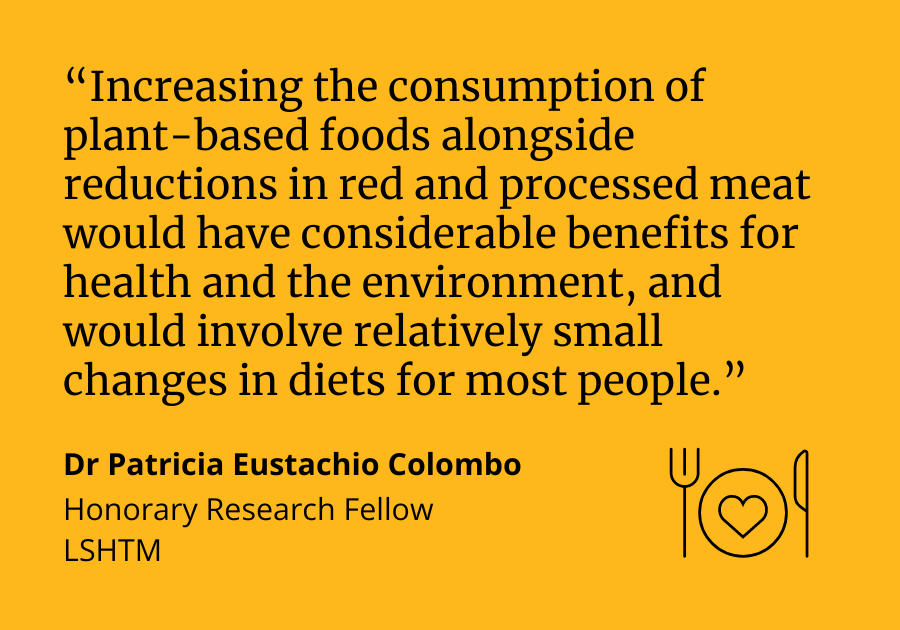
According to the research team, led by McGill University in collaboration with researchers from the London School of Hygiene & Tropical Medicine (LSHTM), replacing red and processed meat or dairy in diets can increase life expectancy by up to 8.7 months or 7.6 months respectively, in addition to environmental benefits.
The study, published in Nature Food, used data from a national nutrition survey, as well as emissions and disease risk data to assess the implications of partial substitutions (25% and 50%) of red and processed meat or dairy with plant protein foods in Canadian self-selected diets. In high income countries such as Canada, both the health and climate impacts of dietary choices are even greater due to a combination of excessive consumption of animal-source foods and lower uptake of plant-based foods. The most recent version of Canada’s Food Guide encourages increasing the amount of plant protein foods (nuts, seeds, beans, peas, lentils, tofu and fortified soy drinks) alongside other proteins, whole grains, vegetables and fruit.
This research found that even partial substitutions of red and processed meat could lead to a 25% reduction in the carbon footprint of diets, as well as improved health and increased life expectancy (due to a reduced risk of chronic disease). Replacing dairy with plant protein foods had a smaller impact on the carbon footprint (5% reduction), and though still resulted in an increased life expectancy, the analysis revealed a trade-off of increased calcium inadequacy of up to 14%.
Dr Patricia Eustachio Colombo, Honorary Research Fellow at LSHTM and co-author of the study emphasises that “Increasing the consumption of plant-based foods alongside reductions in red and processed meat would have considerable benefits for health and the environment, and would involve relatively small changes in diets for most people in Canada”.
Dr Olivia Auclair, first author from McGill University says this paper shows “That co-benefits for human and planetary health do not necessarily require wholesale changes to diets, such as adopting restrictive dietary patterns or excluding certain food groups altogether”.
This research provides evidence of overall co-benefits for nutrition, health and climate from consuming more plant protein, emphasising the importance of sustainable dietary guidance, noting however that the scale of impact depends on the type and amount of animal protein being replaced. The authors call for further assessments combining more sustainability factors (such as social and economic) to better understand these complicated trade-offs and ultimately shape future consumer choices.
“Although it’s important to note that most of our research thus far is theoretical, we hope that this will provide a framework that can be applied to other countries and support further work to overcome the challenges that remain in making such dietary shifts acceptable for consumers in practice”, says Dr James Milner, Associate Professor at LSHTM and co-author of the study.
Read the full article by McGill University.
Publication
Auclair, O. et al. Partial substitutions of animal with plant protein foods in Canadian diets have synergies and trade-offs among nutrition, health and climate outcomes. Nature Food. DOI: https://doi.org/10.1038/s43016-024-00925-y
Our postgraduate taught courses provide health practitioners, clinicians, policy-makers, scientists and recent graduates with a world-class qualification in public and global health.
If you are coming to LSHTM to study a distance learning programme (PG Cert, PG Dip, MSc or individual modules) starting in 2024, you may be eligible for a 5% discount on your tuition fees.
These fee reduction schemes are available for a limited time only.
